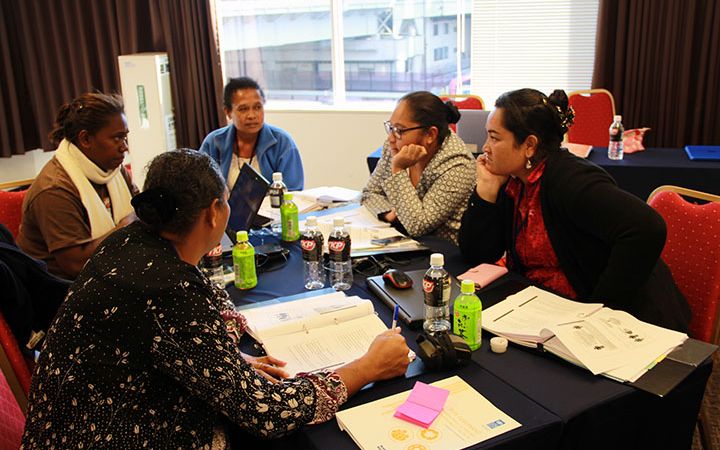Displaying 1871 - 1880 of 2485
12 December 2012, Abidjan, Côte d’Ivoire – Côte d’Ivoire held its National Planning and Inception Meeting for the project “Implications of ratification of the Basel Convention Ban Amendment for Côte d'Ivoire”, on 12 December 2012, with the participation of UNITAR.
20 December 2012, Bangkok, Thailand - During intergovernmental meetings being held this week at the United Nations Economic and Social Commission for Asia and the Pacific (ESCAP), countries from the Asia-Pacific region are showing that their awareness and use of geospatial information to reduce the risk of natural disasters and be better prepared to respond to emergencies is growing steadily.
December 2012, Geneva, Switzerland - In the framework of their collaboration aiming to jointly develop a series of learning programmes in the field of knowledge management, UNITAR and the Food and Agriculture Organization of the United Nations (FAO) have developed the course Innovative Collaboration for
3 December 2012, Geneva, Switzerland - Youth is possibly the largest social actor at global scale and the possibilities arising nowadays from worldwide internet connectivity, social media and real-time communications give youngsters around the globe a formidable opportunity to play a central role in global issues such as climate change and poverty.
29 - 30 November 2012, Santo Domingo, Dominican Republic – A National Forum on Governance and Priority Setting for SAICM Implementation was held in the Dominican Republic from 29 to 30 November 2012. The workshop was held under the framework of a national project for the implementation of the Strategic Approach to International Chemicals Management (SAICM), and consisted of a review of the progress made to date, establishing priorities for national chemicals management, and preparing action plans for selected priorities.
6 December 2012 - Tropical storm Bopha (Pablo locally) cut through the Philippines on 5 December causing death and destruction so intense that it is difficult to assess them with traditional methods. During the passage of the storm, thousands of people in the affected region have exchanged images, footage and comments regarding its impact. However the data is not always geo-tagged and the sheer amount of messages makes it impossible for one entity to sort information.
Geneva, Switzerland, December 2012 - From August 2011 to September 2012, mercury releases inventories were developed in Cameroon, Ethiopia, Gabon, Kenya, Nigeria, South
According to the 2012 World Disasters Report, recently released by the International Federation of Red Cross and Red Crescent Societies (IFRC), over 72 million people are forcibly displaced due to a range of complex drivers including conflict and violence, disasters, political upheaval and even by large-scale development projects. An estimated 20 million among these migrants are living in a state of prolonged displacement.
3 December 2012, Hiroshima, Japan - On the strength of its long-running Series on Sea and Human Security, the UNITAR Hiroshima Office is co-sponsoring the Second Asia Pacific Economic Cooperation (APEC) Blue Economy Forum, being held in Tianjin, China, on December 6 - 7 2012.
Organized by the State Oceanic Administration of China, the Forum is co-sponsored also by:
Organized by the State Oceanic Administration of China, the Forum is co-sponsored also by:


